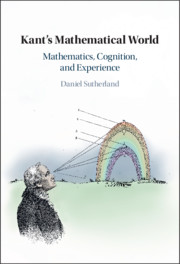5 results
1 - Background
-
- Book:
- The Observation and Analysis of Stellar Photospheres
- Published online:
- 05 January 2022
- Print publication:
- 16 December 2021, pp 1-26
-
- Chapter
- Export citation
7 - Kant’s Reworking of the Theory of Magnitudes
- from Part II - Kant’s Theory of Magnitudes, Intuition, and Measurement
-
- Book:
- Kant's Mathematical World
- Published online:
- 21 October 2021
- Print publication:
- 28 October 2021, pp 197-218
-
- Chapter
- Export citation
10 - Concluding Remarks
- from Part II - Kant’s Theory of Magnitudes, Intuition, and Measurement
-
- Book:
- Kant's Mathematical World
- Published online:
- 21 October 2021
- Print publication:
- 28 October 2021, pp 281-285
-
- Chapter
- Export citation

Kant's Mathematical World
- Mathematics, Cognition, and Experience
-
- Published online:
- 21 October 2021
- Print publication:
- 28 October 2021
3 - The Frailty of Privacy Theory
- from Part I - Privacy
-
- Book:
- Privacy in the Age of Neuroscience
- Published online:
- 09 April 2021
- Print publication:
- 15 April 2021, pp 71-90
-
- Chapter
- Export citation

